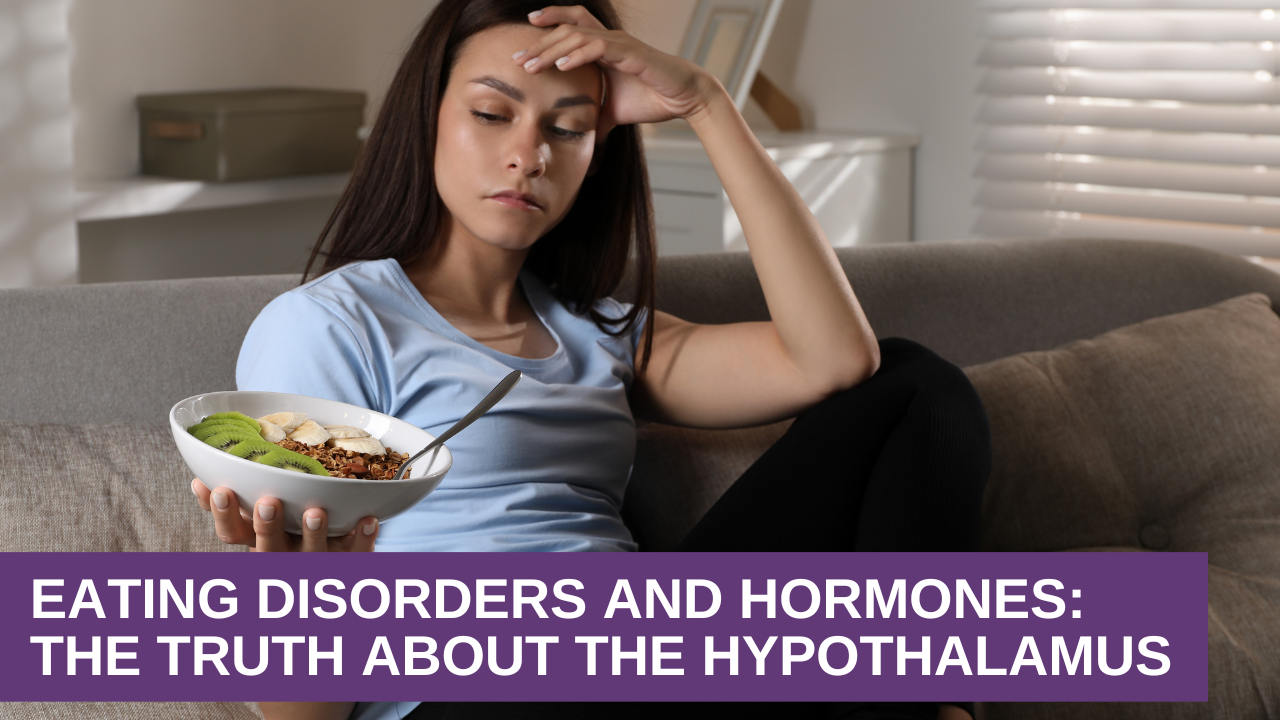We often think of eating disorders as emotional or psychological conditions. And while that’s true… there’s another layer almost no one is talking about: Hormones — and specifically, the role of the hypothalamus. If you’ve struggled with your relationship with food, this could change how you understand your body completely.
Eating disorders — whether it’s restriction, bingeing, or chronic dieting — don’t just affect your behavior.
They deeply impact your hormonal communication system.
And for many people, that imbalance starts before the eating disorder ever shows up.
At the Center Of It All Is Your Hypothalamus — The Control Center In Your Brain That Regulates:
- Hunger and fullness
- Metabolism
- Body temperature
- Hormonal rhythm
- And your response to stress
When you ignore or override your body’s signals over time — through restriction, fear of food, or erratic eating — the hypothalamus stops trusting that it’s safe to maintain a balanced rhythm.
It becomes hyper-vigilant, trying to protect you — even when the threat is gone.
That’s why you may feel:
- Disconnected from true hunger or fullness
- Trapped in constant food thoughts or compulsions
- Exhausted even when eating “enough”
- Stuck in cycles that don’t respond to willpower or nutrition plans
Because this isn’t about just behavior.
It’s about how your entire neuroendocrine system has been disrupted.
Healing starts when we stop treating eating disorders only at the surface.
We have to go deeper — into the physiological effects of those patterns.
A new study shows larger hypothalamic subregions suggesting chronic inflammation in women with anorexia and obesity.
Here’s How We Begin to Repair:
1. Restore trust between body and brain.
That starts with predictable rhythm: regular meals, rest, movement, and stress reduction.
2. Nourish the inflamed hypothalamus.
Supportive nutrients and nervous system regulation help your body feel safe enough to reset its appetite and energy cues.
3. Stop trying to control your body — and start working with it.
When you understand what your symptoms are trying to tell you, the shame starts to fall away — and healing becomes possible.
If you’ve struggled with your relationship to food, body image, or eating patterns…
And you’re ready to heal from the inside out — I want to invite you to my free Hormone Reboot Training.
In it, I’ll show you how to reset the hypothalamus, restore your body’s trust in itself, and begin to repair the hormonal signals that affect hunger, metabolism, and mood.
This isn’t about another diet.
It’s about finally understanding your body — and learning how to care for it with compassion and clarity.




0 Comments